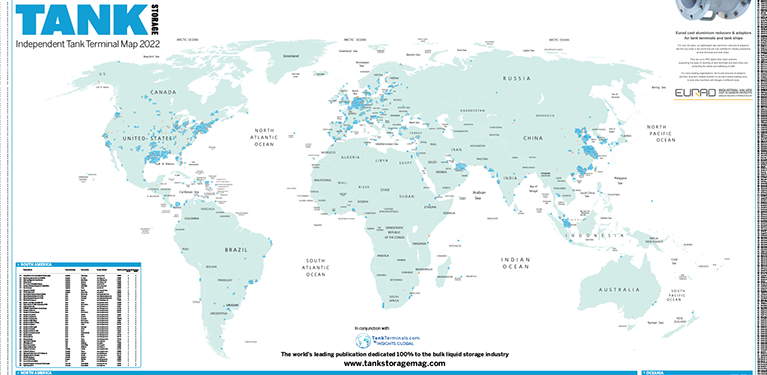Rafael Rengifo and Iván Parra Tepedino from Becht explain the role the midstream sector plays in the energy transition
As the global energy landscape undergoes a profound emphasis on sustainability and reduced carbon emissions, the midstream sector finds itself at a pivotal crossroads. Traditionally serving as the unsung hero in the energy value chain, midstream operations are now faced with the challenge and opportunity of aligning with the goals of the energy transition while navigating through the complexities of regulations and the feasibility of decarbonisation options.
The Midstream Sector
The midstream sector is a crucial link connecting the upstream (exploration and production) and downstream (refining and distribution) segments of the energy industry. This sector primarily involves the transportation, storage, and wholesale marketing of energy products, including crude oil, natural gas, and refined petroleum products. In today’s world, the challenge is that the hydrocarbon-based commodities and chemicals transported, stored and distributed are prospective generators of CO2 and other greenhouse gases that ESG regulations are targeting. Therefore, midstream businesses need to be prepared to adapt to the new social, political and marketing landscape.
Key Challenges
With global efforts to combat climate change, there is increasing pressure on all sectors to reduce carbon emissions. The midstream sector, traditionally associated with fossil fuel transport, faces the challenge of aligning its operations with decarbonisation goals. For many midstream companies, the answer, for now, is to focus on minimising the release of methane, carbon dioxide, and other GHGs from their gas processing plants, pipelines, storage facilities, and fractionators, and on switching to renewables to power their operations.
The European Union (EU) has established a comprehensive framework to achieve its goal of becoming climate-neutral by 2050, emphasising the reduction of greenhouse gas emissions and the promotion of sustainable practices. Key components of this framework include the EU Green Deal, Fit for 55 package, the EU Emissions Trading System (ETS), and the Renewable Energy Directive (RED). As the world embraces renewable energy sources, the midstream sector must adapt to the changing dynamics of the energy mix. The transportation of renewable fuels, such as hydrogen and biofuels, is gaining prominence, requiring infrastructure adjustments.
Midstream’s Contribution
The midstream sector can play a pivotal role in building the infrastructure necessary for the transportation and storage of renewable energy sources. This includes pipelines for hydrogen, renewable/biofuel terminals, and the replacement of equipment and fuel sources. An often-missed and costly point is that with the ESG systems and credits or validation it is necessary to have segregation from source to blending.
Midstream companies can proactively diversify their energy portfolios by investing in low-carbon and renewable energy projects. This strategic shift allows for long-term sustainability and resilience in a changing energy landscape. Implementing CCS technologies in midstream operations can help mitigate carbon emissions associated with fossil fuel transportation. This involves capturing CO2 emissions at the source and transporting them for secure storage.
By also leveraging advanced technologies, such as IoT sensors and data analytics, a facility can optimise the transportation and storage of energy products. This not only improves operational efficiency but also reduces environmental impacts. By embracing digitalisation, automation, and other innovative technologies, the midstream sector can optimise its operations, improving efficiency, and minimising environmental impacts.
How can Becht help?
Becht specialises in assisting midstream partners in achieving their emission reduction targets while remaining cost- competitive and supporting the EU’s emissions reduction goals. By partnering with Becht, midstream clients can access its expertise and industry knowledge to implement sustainable practices and contribute to a more environmentally friendly future. Its team of highly qualified consultants have hands-on experience working with different partners on a variety of projects addressing the energy transition and helping them navigate through very important issues.
The midstream sector’s adaptability and proactive involvement in the energy transition are essential for achieving global sustainability goals. By embracing innovation, investing in renewable infrastructure, and committing to carbon reduction strategies, midstream companies can not only remain relevant but also become key facilitators of a more sustainable and resilient energy future. As the world transitions towards cleaner energy, the midstream sector’s evolution will be instrumental in shaping a greener and more sustainable planet.

















